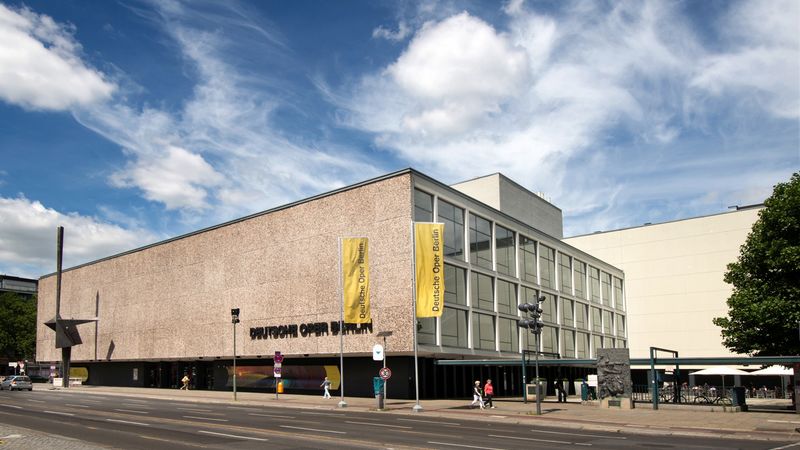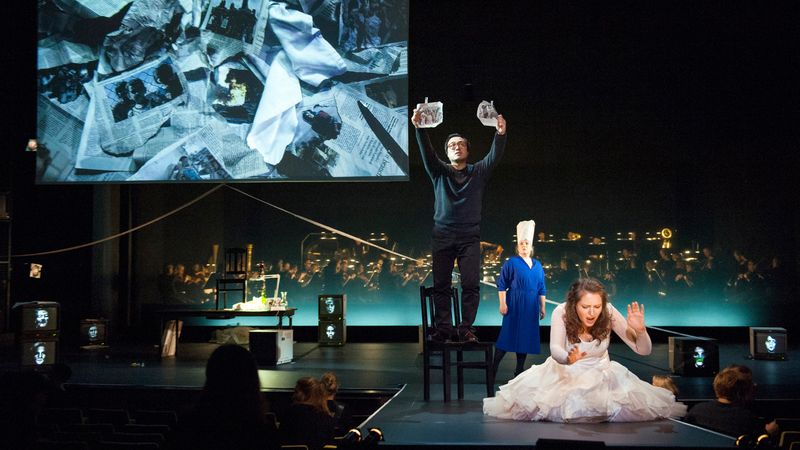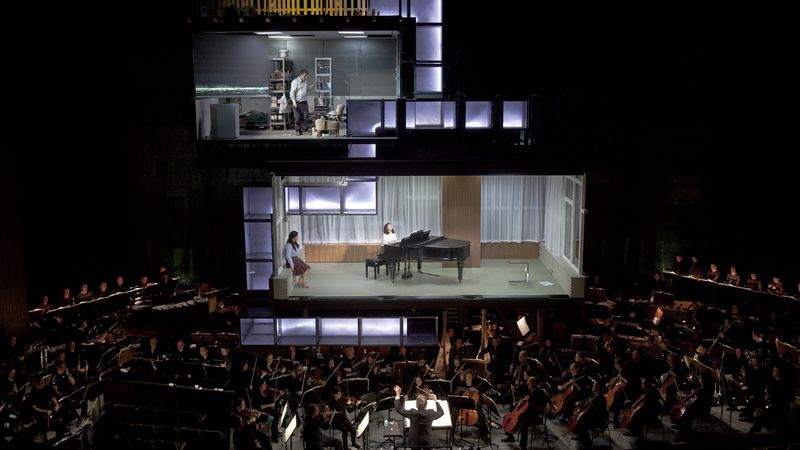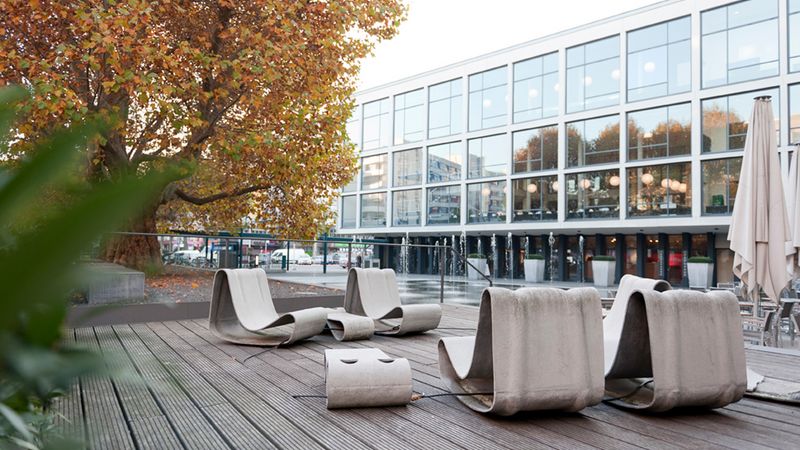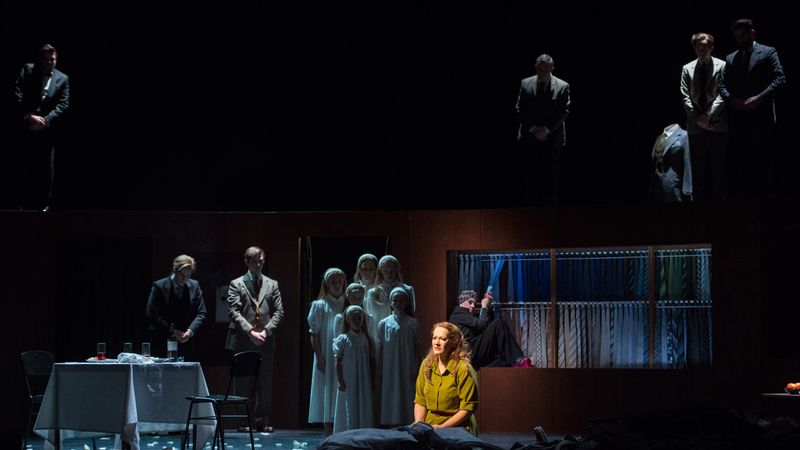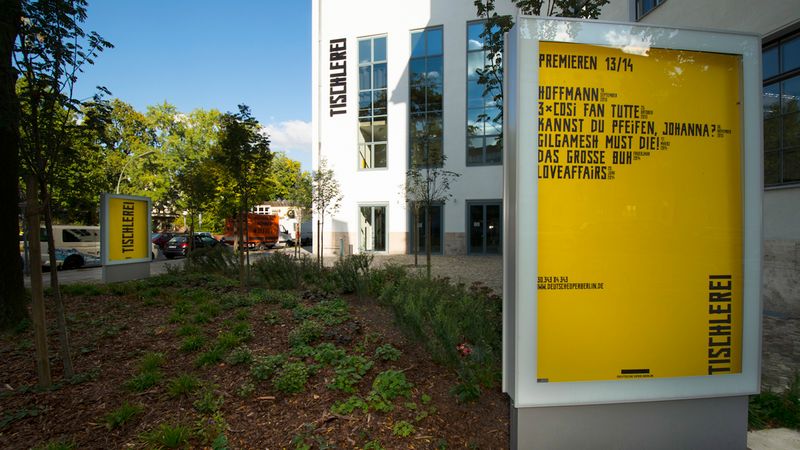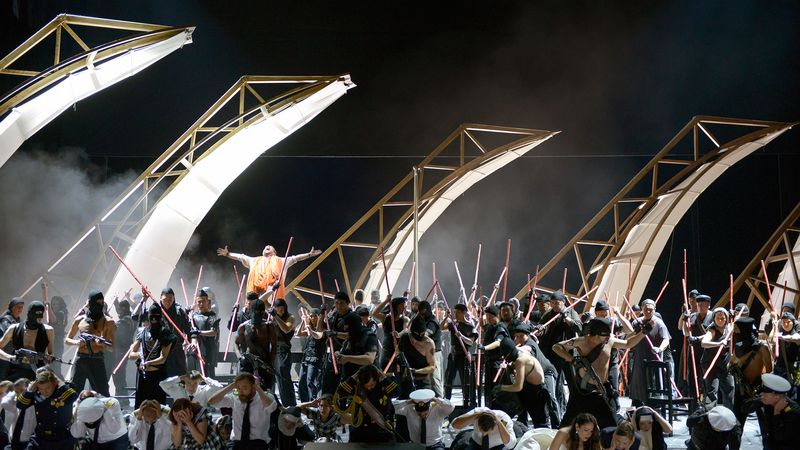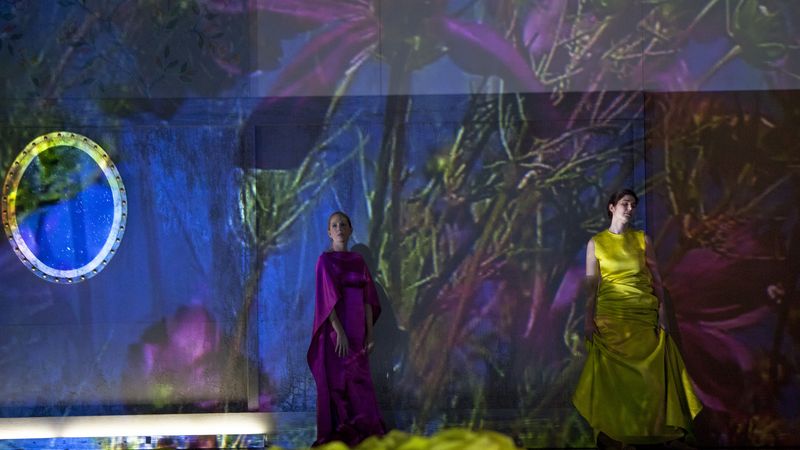Deutsche Oper
Berlin
It was almost a small cultural revolution that Berlin's citizens dared to undertake when they founded the Deutsche Oper more than a hundred years ago in Charlottenburg, which was still independent at the time. An opera house of its own, explicitly dedicated to modern music theatre from Richard Wagner onwards - that was a clear counter-model to the venerable court opera on Unter den Linden. And what's more, the building on Bismarckstraße, with more than 2,000 seats, was not only larger than all the other theatres in the city, but with its renunciation of boxes, it implemented the ideal of a "democratic" opera house that offered a full view of the stage from all seats. The theatre has remained true to this tradition of a civic opera without pomp and plush in Fritz Bornemann's new building, which opened in 1961: To this day, the excellent sightlines and acoustics provide the setting for exceptional music theatre, which can be experienced by almost 2000 visitors every evening. And the spacious foyers, whose architectural elegance is now perceived anew, remain one of the capital's central cultural meeting places.
Directors such as Götz Friedrich and Hans Neuenfels, conductors such as Ferenc Fricsay, Giuseppe Sinopoli and Christian Thielemann, but also singers of the century such as Dietrich Fischer-Dieskau, Christa Ludwig and Julia Varady have helped write the history of this house and given the name of the Deutsche Oper an international sound. The house continues this tradition to the present day, with international singing stars appearing alongside the first-class ensemble in the rich repertoire of performances. Modern interrogations of the great classics from Mozart to Verdi and Wagner to Strauss and Puccini play just as important a role here as contemporary opera - e.g. Helmut Lachenmann's "Das Mädchen mit den Schwefelhölzern", Aribert Reimann's "L'Invisible", Chaya Cernowin's "Heart Chamber" and Detlev Glanert's multi-award-winning "Oceane". Under its general music director Sir Donald Runnicles, the orchestra of the Deutsche Oper Berlin is one of the country's outstanding orchestras. In addition to opera evenings, it can be heard at the Musikfest Berlin in the Philharmonie, at the BBC Proms and at the Edinburgh International Festival. The much-praised choir of the Deutsche Oper Berlin has been voted "Chorus of the Year" several times for its excellent performances.
The spectrum of productions ranges from a classically naturalistic "Tosca" from 1969 to a directorial approach incorporating cinematic means in "Rienzi" (directed by Philipp Stölzl) to productions such as Ole Anders Tandberg's "Carmen" and Frank Castorf's "La forza del destino", which reflect more recent developments in theatre. With Benedikt von Peter's hotly debated and enthusiastically acclaimed "Aida" production, Pınar Karabulut's hit production of "Greek", Vasily Barkhatov's interpretation of Verdi's "Simon Boccanegra" and, most recently, the British collective Dead Centre's world premiere direction of Giorgio Battistelli's "Il Teorema di Pasolini", a young generation of directors is emerging at Deutsche Oper Berlin alongside distinguished masters such as Claus Guth, Christof Loy and Graham Vick. In the 2023/24 season, three further cycles of the new production of "Der Ring des Nibelungen" are on the programme, which Donald Runnicles has developed with Stefan Herheim, one of the most distinguished music theatre directors of the moment, and which, with its excellent cast, has also been released on DVD by Naxos.
The new venue TISCHLEREI (opened in November 2012) creates a perfect space for experiments with new forms of music theatre and world premieres on often politically topical themes, as in "Negar", a composition by the French-Iranian musician Keyvan Chemirani directed by Marie-Ève Signeyrole, or as in Sergei Zhadan's libretto for the co-production with the Munich Biennale "Songs of Expulsion and Never Return". In addition, in regular cooperation with the Hanns Eisler Academy of Music, world premieres are created in the "New Scenes" series, children's operas such as "The Snow Queen" are produced and youth programme projects take place, which are a special concern of artistic director Dietmar Schwarz.

